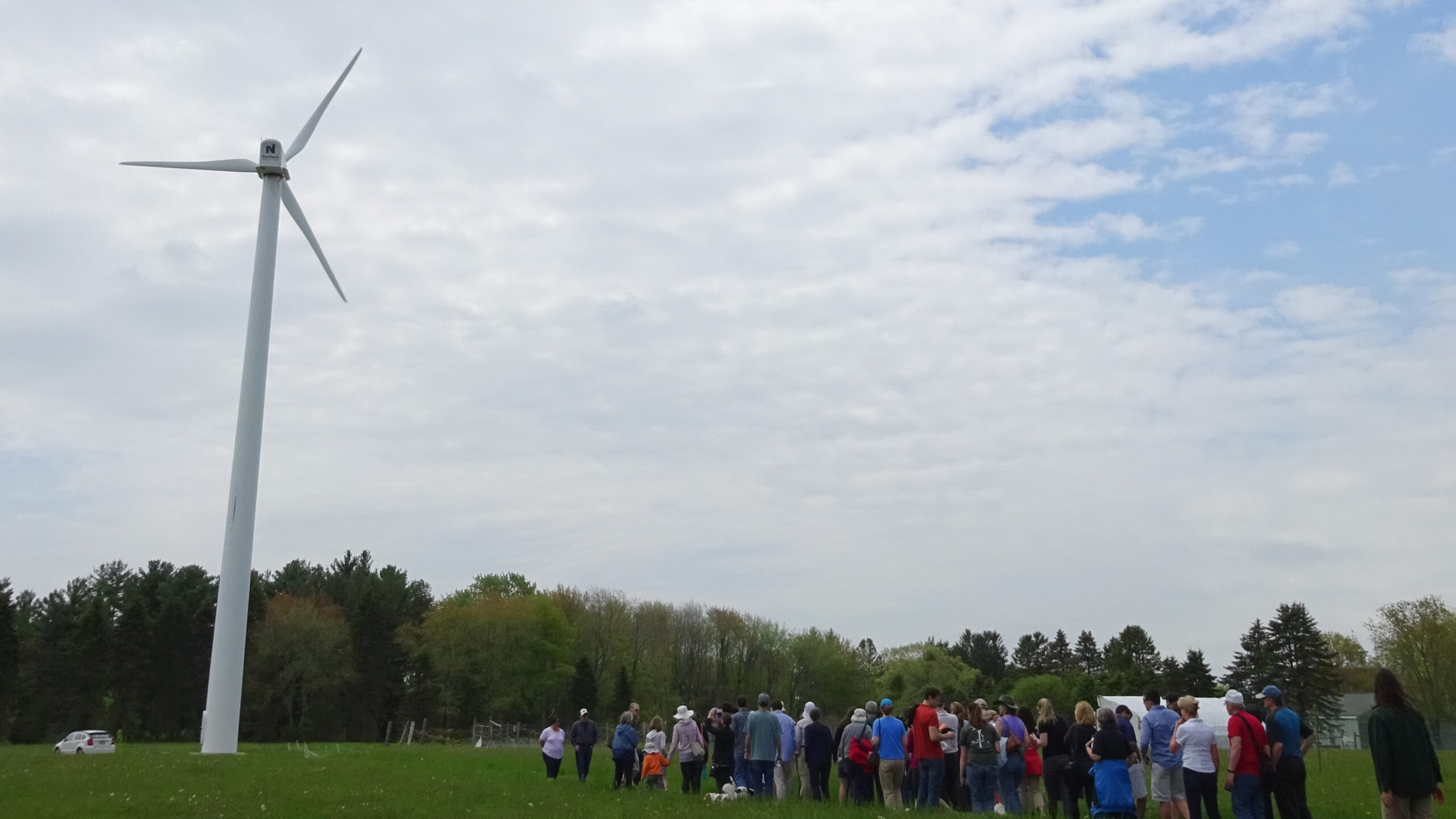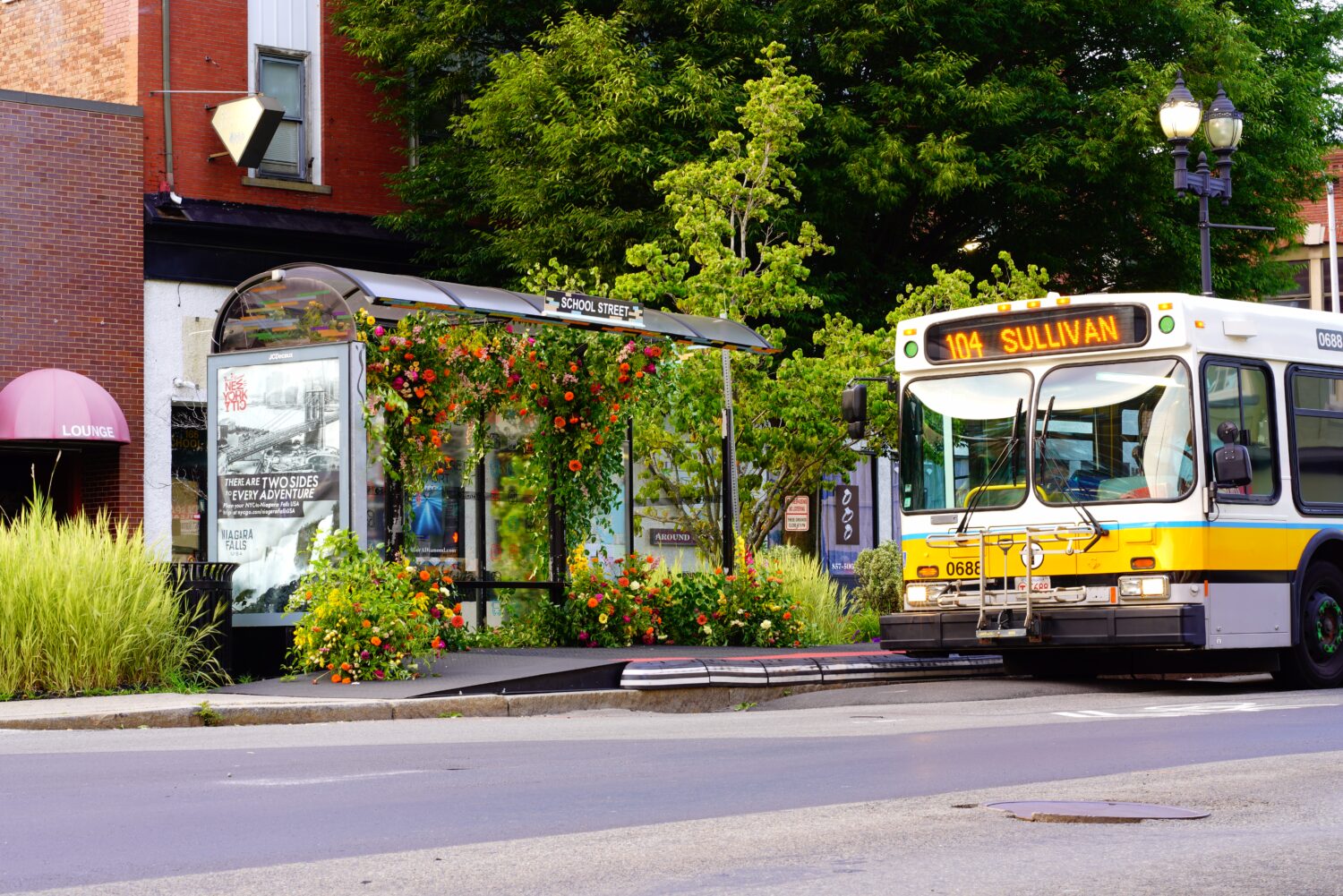As Massachusetts seeks to accelerate its clean energy transition, more communities have begun to pursue green municipal aggregation (GMA)– also known as community choice aggregation or community choice electricity. GMA allows Massachusetts and cities and towns to request bids from electricity suppliers to meet their community’s energy needs. In Massachusetts, GMAs have emphasized securing cleaner energy than is provided by basic utility service.
Barr’s Climate program has long supported educational efforts led by community advocates across the region to support GMA implementation. We view these aggregations as a critical strategy to increase energy affordability, protect consumers from predatory retail electricity providers and drive towards the Commonwealth’s decarbonization goals. In Boston, all customers, from those receiving default service to those opting-in to the 100% renewable energy tier, are receiving electricity at less than the Eversource basic service rate.This program saves residents money in one of the most energy burdened cities in the country. Many more communities are still waiting for their GMAs to be approved by the Department of Public Utilities so that they can access the public health, climate, and cost saving benefits of the program. It is our hope that these approvals can be accelerated ahead of the winter season so that more Massachusetts residents can benefit from the impact of renewable energy.
Green Energy Consumers Alliance (GECA) has served as a long-time partner and leader for GMAs. GECA recently released a new report analyzing the collective impact of green aggregation programs on emissions reductions and cost savings for ratepayers in Massachusetts.
Background
GECA is excited to present our new report on the great benefits brought to the Commonwealth through Green Municipal Aggregation (GMA) programs. Our report includes data on over 200 communities, and we show how there are opportunities to build upon a great record of success to achieve even more if state government provides the support aggregation deserves.
Municipal aggregation is the process by which a town or city purchases electricity in bulk from a competitive supplier on behalf of the residents and businesses within the community. The fundamental characteristic distinguishing GMA from traditional aggregations is that the default electricity supply in a GMA includes more Class I renewable content than required by the Massachusetts Renewable Portfolio Standard (RPS). Class I renewable energy is wind, solar, anaerobic digestion, and low-impact hydro, as defined here by the Commonwealth.
Aggregation impacts the supply portion of energy bills. This report compares the renewable energy content and pricing of supply offered by aggregations to that of Basic Service products offered by utilities and products offered by competitive suppliers.With an aggregation, electricity is still delivered or distributed by the local utility and rates for distribution are regulated by the Department of Public Utilities.
Green Energy Consumers Alliance serves several GMAs by supplying them with renewable energy over and above the amount required to meet the state mandates: Arlington, Bedford, Brookline, Dedham, Fairhaven, Gloucester, Hamilton, Medford, Melrose, Millis, Milton, Rockland, Somerville, Stoneham, Waltham, Westford, and Winchester. Green Energy Consumers Alliance also supplies additional renewable energy for consumers in these communities who opt-up to 50%, 65%, or 100% renewable energy content.
Findings
Our report is based upon Green Energy Consumers’ direct experience as well as our analysis of similar programs throughout Massachusetts.Here are the key facts:
- 215 cities and towns have an approved aggregation plan, have participated in aggregation in the past, or are currently researching aggregation or waiting to be approved by the Department of Public Utilities.This color-coded map shows which communities have aggregations and how much they are adding in terms of Class I renewable energy.

- Of that total, 50 communities have, “dark green” programs with a default electricity supply product with 5 percent or more Class I renewable content than required by the RPS.
- Over 20 more are “light green” with some extra renewable energy content but less than 5 percent.
- Over 40 communities don’t have a default product with Class I renewable content but offer an opt-up option.
- Altogether, these programs are increasing demand for renewable energy by one million megawatt-hours per year beyond state requirements. That’s the equivalent of about 300 large wind turbines. These programs are achieving success without public subsidy.
- We analyzed data on the 38 communities with default products that include between 5 and 11 percent Class I renewable energy beyond the RPS (which is 24% in 2022).Ratepayers enrolled in those products saved an average of 1.3 cents per kilowatt-hour compared to the Basic Service energy supply offered by Eversource or National Grid.For an average consumer using 6000 kilowatt-hours per year, the annual savings would be $78 per household. That’s significant savings for programs offering significantly more green power than the investor-owned utilities.
If every family throughout the Commonwealth enrolled in such an aggregation program, with 5-11% extra green power, the savings would amount to over $200 million per year and the additional renewable energy would amount to 1.6 million megawatt-hours. It is important to note, however, that savings for GMA compared to utility Basic Service are not guaranteed. However, our analysis of the empirical data shows that recent history has been in favor of aggregation. We have observed that GMA is not always less expensive than Basic Service, but in the case of three-year contracts, which include six 6-month cycles of Basic Service pricing, GMA is less expensive most of the time.

Relevance
Green Municipal Aggregation is solid evidence that we can speed up the transition to green power affordably. The climate deniers who insist that fossil fuels are always better for the consumer are wrong.
With GMA, consumers can opt-out, if they choose not to participate, at any time without penalty or, in many cases, stay with the aggregation and “opt-down” to a product that isn’t greener than state law requires and that costs the least.
This report documents that bill savings are possible for people in aggregations compared to Basic Service, with the potential for even larger savings compared to products offered by competitive power suppliers working outside of aggregation programs.The Attorney General’s office has produced three reports demonstrating that competitive power suppliers generally over-charge customers, especially customers who are low-income and people of color.
Despite all these measures of success, the Mass. Department of Public Utilities has been incredibly slow to approve plans proposed by new communities and even minor amendments proposed by existing aggregations. As H. Jackson Brown wrote, nothing is more expensive than a missed opportunity.
Additional coverage:
- “An innovative state energy program is lowering emissions — and residents’ electric bills” (The Boston Globe, July 2)
- “Green Power At Lower Cost: Municipal Aggregation Is A Huge Success In Massachusetts” (Green Energy Consumers Alliance)





